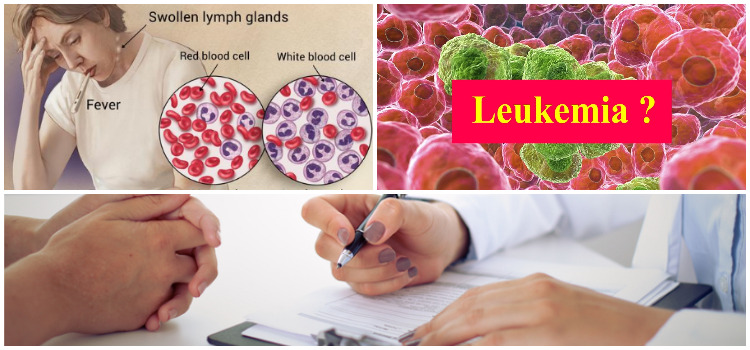
Leukemia is generally a cancer of white blood cells (WBCs), also referred to as blood cancer that develops from an overproduction of immature white blood cells. In people suffering from leukemia, the bone marrow produces abnormal white blood cells, which usually crowd out the healthy blood cells and making it hard for other blood cells to function properly.
Types
Leukemia is generally classified as acute or chronic. There are four main types of leukemia:
- Acute myelogenous leukemia (AML)
- Acute lymphocytic leukemia (ALL)
- Chronic myelogenous leukemia (CML)
- Chronic lymphocytic leukemia (CLL)
A few forms of leukemia occur more commonly in children, while various other forms are mostly found in adults.
The exact cause of leukemia is still unknown. But day to day exposure to chemicals in food and air are involved in the genesis of leukemia.
Other risk factors have been identified as use of smoking or tobacco, family history of leukemia, chromosome abnormalities, exposure to radiation and cancer chemotherapy etc.
Symptoms of Chronic or Acute Leukemia Includes:
- Weak or tired feeling
- Bruising and bleeding
- Night sweats or fever
- Lymph nodes swelling that don’t hurt
- Suffering from frequent infections
- Bones or joints pain
- Abdominal swelling or discomfort
- Loss of appetite and weight loss
Diagnosis
A person may be identified as suffering from leukemia during routine health check-ups, work-up for any surgery or minor illness. Once signs or symptoms suggest leukemia, they can perform following diagnostic exams:
- Physical Exam- Doctor can find the signs of leukemia like a pale skin due to anemia, swelling of lymph node, liver and spleen enlargement.
- Blood Tests- Abnormal levels of white blood cells or platelets may indicate leukemia.
- Bone Marrow Test- A sample of bone marrow can be taken from hip bone and sent to a laboratory to find leukemia cells.
Treatment
Leukemia treatment options depend on many factors, such as leukemia type, a person age, overall health, and whether cancer cells have spread to other parts of your body.
Common treatments to fight back leukemia include:
- Chemotherapy- It is the primary treatment option for leukemia. Various chemicals are used to kill leukemia cells.
- Biological Therapy- It helps immune system to find and attack specific leukemia cells.
- Targeted Therapy- Here, various drugs are used to attack specific vulnerable cancer cells.
- Stem Cell Transplant- This procedure is used to replace a diseased bone marrow with a healthy bone marrow.
A diagnosis of leukemia can be devastating for you and your family members. So, it is necessary for you to find reliable ways to cope with the distress and uncertainty of cancer. Or ask your doctor about any support groups in your area.
